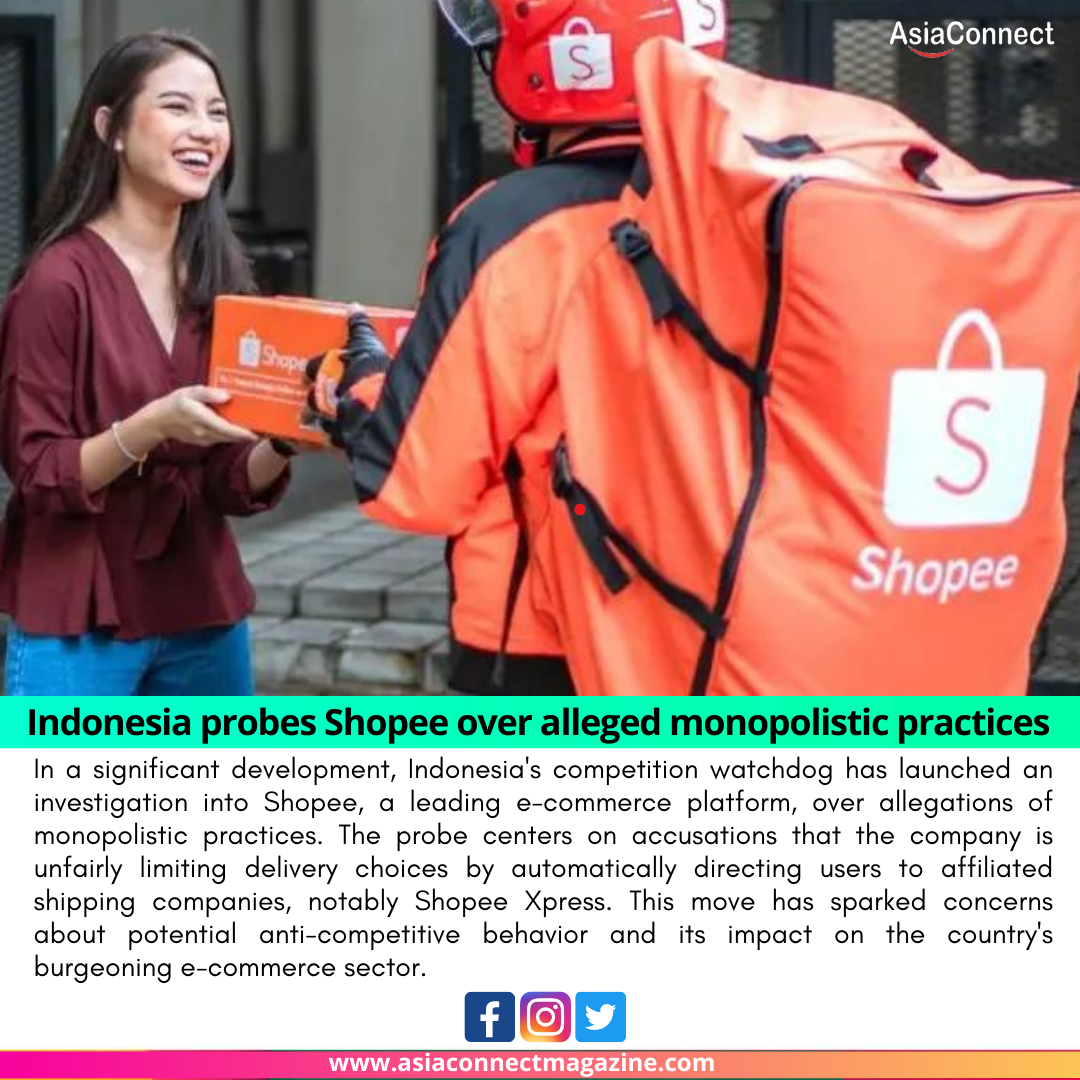In a significant development, Indonesia’s competition watchdog has launched an investigation into Shopee, a leading e-commerce platform, over allegations of monopolistic practices. The probe centers on accusations that the company is unfairly limiting delivery choices by automatically directing users to affiliated shipping companies, notably Shopee Xpress. This move has sparked concerns about potential anti-competitive behavior and its impact on the country’s burgeoning e-commerce sector.
Background on Shopee and E-commerce in Indonesia: Shopee, owned by Singapore-based Sea Limited, has emerged as a dominant player in Indonesia’s rapidly growing e-commerce market. With its user-friendly interface, diverse product offerings, and aggressive marketing campaigns, Shopee has garnered a sizable share of the country’s online retail landscape. Indonesia, home to over 270 million people, presents a lucrative market for e-commerce companies, fueled by increasing internet penetration and a burgeoning middle class with rising purchasing power.
Allegations of Monopolistic Practices: The investigation into Shopee revolves around allegations of monopolistic practices related to its delivery services. Critics argue that the platform unfairly promotes its in-house logistics arm, Shopee Xpress, by automatically routing orders through this service, thereby limiting users’ choices and potentially stifling competition from other logistics providers. This practice allegedly undermines consumer welfare by restricting options for faster or cheaper delivery alternatives.
Concerns Raised by Competition Authorities: Indonesia’s competition watchdog, the Business Competition Supervisory Commission (KPPU), has expressed concerns about the potential anti-competitive effects of Shopee’s alleged practices. By leveraging its dominant market position to favor its affiliated shipping company, Shopee may be distorting the level playing field and impeding fair competition in the e-commerce sector. This investigation underscores the importance of upholding competition laws to safeguard consumer interests and promote market efficiency.
Implications for the E-commerce Sector: The outcome of the investigation could have far-reaching implications for the e-commerce ecosystem in Indonesia. If Shopee is found to have violated competition laws, it may face regulatory sanctions, including fines and corrective measures to remedy anti-competitive behavior. Moreover, the case could set a precedent for how competition authorities regulate e-commerce platforms’ conduct in the region, potentially shaping industry dynamics and business practices going forward.
Response from Shopee: Shopee has asserted its commitment to complying with all relevant laws and regulations in Indonesia. The company maintains that its logistics policies are aimed at providing efficient and reliable delivery services to its customers. Shopee has pledged to fully cooperate with the authorities’ investigation and address any concerns raised during the process. However, it remains to be seen how the company will navigate the regulatory scrutiny and potential ramifications of the probe.
Conclusion: The investigation into Shopee’s alleged monopolistic practices underscores the growing regulatory scrutiny facing e-commerce platforms operating in Indonesia’s vibrant market. As authorities seek to ensure fair competition and protect consumer interests, companies like Shopee must navigate the evolving regulatory landscape while balancing their business objectives. The outcome of the investigation will not only impact Shopee’s operations but also serve as a litmus test for competition enforcement in the digital economy era. In the pursuit of a level playing field, Indonesia’s e-commerce sector may witness significant regulatory shifts aimed at fostering competition, innovation, and consumer choice in the years to come.





